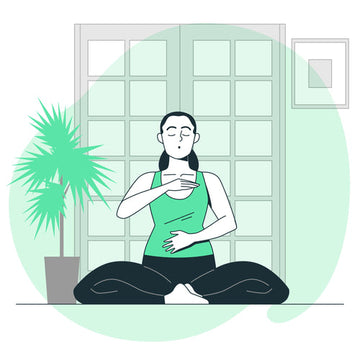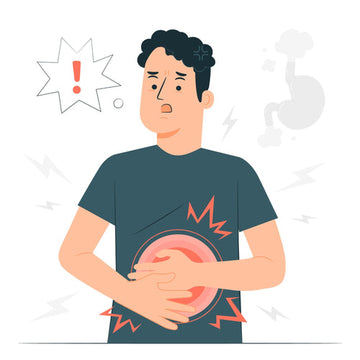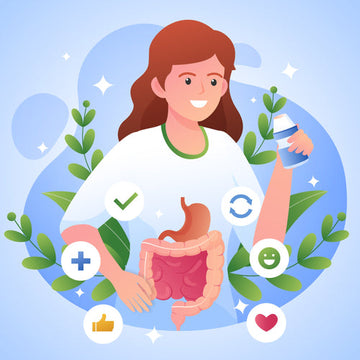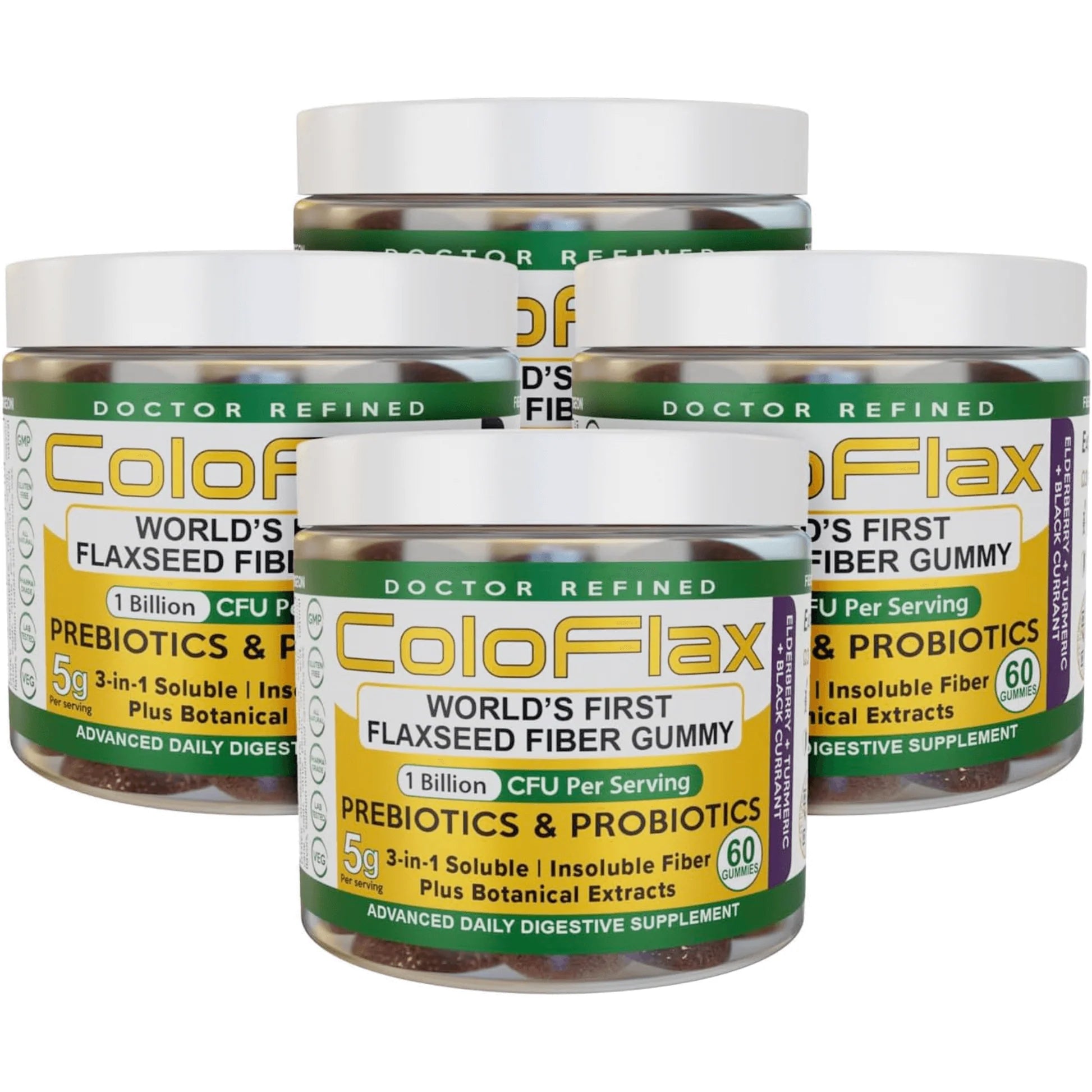Crohn’s disease is an inflammatory bowel disease (IBD) that can produce an array of symptoms, including pain, weight loss, and fatigue. Sufferers typically go through periods of remission, when symptoms are not present, and flare-ups, when the symptoms are at their worst.
It’s an uncomfortable, painful, and potentially life-changing condition, and while there is no known cure, there are ways to effectively manage the symptoms and live comfortably.
In this guide, we’ll tell you all about those treatments while also looking at the causes, diagnostic methods, and more.
What Are the Types of Crohn’s Disease?
There are several types of Crohn’s disease. They all produce their own unique set of symptoms and cause inflammation in different parts of the gastrointestinal (GI) tract. These types include:
Ileitis
Ileitis causes inflammation in the ileum, the last part of the small intestine. It may result in weight loss, cramping, and diarrhea, as well as pain and inflammatory abscesses.
Jejunoileitis
So-called because it causes inflammation in the jejunum—the middle part of the small intestine—jejunoileitis may cause cramping after large meals, as well as diarrhea and moderate to severe abdominal pain.
Ileocolitis
Like ileitis, ileocolitis affects the ileum, but it also affects the colon and can cause weight loss, cramping, pain, and diarrhea.
Gastroduodenal Crohn’s
Gastroduodenal Crohn’s impacts the duodenum—in the small intestine—and the stomach. In addition to appetite loss and weight loss, it can lead to nausea and vomiting.
Crohn’s Colitis
Affecting only the colon, Crohn’s Colitis may cause skin lesions and joint pain, in addition to typical Crohn’s symptoms like diarrhea.
What Causes Crohn’s Disease?
It’s not known what causes Crohn’s disease, though it’s thought to be an autoimmune response. Simply put, the body’s immune system perceives a threat where there is none and attacks healthy cells.
There may also be a genetic factor involved, as it seems to run in families. This means that if any of your parents have the condition, you are more likely to get it as well.
Some of the other known risk factors for Crohn’s disease include:
- Smoking: It is thought that smoking significantly increases the risk of getting Crohn’s disease.
- Diet: Some foods can trigger the symptoms of Crohn’s disease, and it’s also thought that eating a high-fat diet makes you more prone to getting it.
- Medications: Excessive use of NSAIDs may increase the risk of Crohn’s disease. It also seems to be more present in people who take birth-control pills and those who have taken multiple courses of antibiotics.
Does Crohn’s Get Worse with Age?
Although Crohn’s can change as you age, it doesn’t necessarily get worse. In some cases, the condition remains the same. In others, it improves. It can get worse, but being older also means you have more exposure to known triggers and potential treatments, so there’s a good chance you’ve learned how to control and manage the condition.
How Serious is Crohn’s?
Crohn’s is a manageable condition, but it can also present with some serious adverse health outcomes.
What is the Life Expectancy of People With Crohn’s?
A 2009 meta-analysis looked at a total of 9 studies and found that there was a slightly increased mortality in people with Crohn’s. In other words, individuals with Crohn’s were living slightly shorter lives. (1)
However, this could be a case of correlation vs causation. In other words, just because A links to B doesn’t mean that A is a direct cause of B. It could be that people with Crohn’s disease are more likely to smoke and have comorbid conditions, as well as high levels of stress and anxiety, all of which can shorten life expectancy.
What are the Symptoms of Crohn’s Disease?
The exact symptoms of Crohn’s can differ depending on the category of disease and the location of the inflammation. Some of the most common symptoms include:
- Diarrhea
- Fatigue
- Cramping
- Abdominal pain
- Blood in the stool
- Reduced appetite
- Weight loss
- Mouth sores
In some cases, Crohn’s can also cause anemia, joint inflammation, and kidney stones.
If you notice changes in your bowel habits, see blood in your stool, or experience abdominal pain, speak with your doctor. Don’t self-diagnose, as there are many conditions that can present with similar symptoms, and it’s important to catch the worst of these as early as possible.
What Are the Complications of Crohn’s?
If untreated, Crohn’s can lead to bowel obstructions, ulcers, and fistulas, all of which may require additional treatments. The risk of colon cancer also increases, and the effect on appetite means that malnutrition is a possibility.
What Does Crohn’s Pain Feel Like?
Crohn’s pain is a cramping pain that some sufferers describe as a twisting knot in the stomach. At its worst, it can be debilitating and is not the sort of pain that’s easy to hide as you get on with your life. The severity can vary though.
How is Crohn’s Disease Diagnosed?
If you’re suffering from some of the symptoms associated with Crohn’s disease, speak with your doctor and they will try to make a diagnosis.
At first, they may check your medical history and ask questions about your symptoms. Tell them everything that you know and anything that seems relevant, including when the symptoms appear, how frequent they are, and what the potential triggers are.
They may also check your family history, as Crohn’s disease and other digestive disorders can run in the family.
They will likely perform a physical exam. They’ll check your abdomen to feel for bloating and listen to any abnormal sounds. They may also tap and press on certain areas to check for pain and tenderness.
If the questions and exam don’t tell them what they need to know, your doctor may order a few tests, including blood and stool tests. Colonoscopies are common too and will give them an insight into your digestive health.
The goal of these tests is not just to diagnose Crohn’s disease, but also to rule out other conditions.
How is Crohn’s Disease Treated?
Although there is no known cure for Crohn’s disease, there are treatments that can make the condition more manageable. The most common treatments prescribed to sufferers of Crohn’s disease include:
Medications
Certain medications can help to reduce inflammation caused by Crohn’s disease and may soothe digestive issues. Some of the medications used to treat Crohn’s include:
- Aminosalicylates (5ASAs): These drugs are used to reduce inflammation in the intestinal lining. They may also help to combat joint inflammation.
- Biologics: A type of immune-suppressing medication that can provide relief from an array of symptoms.
- Immunomodulators: These meds are used to settle an overactive immune system and may alleviate the symptoms of Crohn’s.
- Pain Killers: OTC medications like Tylenol can help with the management of mild to moderate pain. Some pain medications may exacerbate the symptoms, so check with your doctor before starting these meds.
- Antidiarrheal: Loperamide is derived from opium and used to treat diarrhea. It’s very effective and doesn’t produce the same euphoric effects or concerning side effects as other opioids. Pepto-Bismol can also help to settle the digestive tract.
Bowel Rest
Bowel rest involves not eating or drinking anything for a specific length of time, thus giving the bowels a rest. It’s often recommended when the symptoms reach their peak and become debilitating.
Bowel rest is performed under medical supervision, with the patient given essential nutrients via a feeding tube or IV. It can also be performed at home on the advice of a healthcare provider. In such cases, you can get the vitamins and minerals you need from a nutrient-dense drink.
Dietary Changes
Crohn’s is a digestive disorder, so it’s heavily dependent on what you eat. That’s not to say that a healthy, balanced diet will cure the condition or even prevent flare-ups, but it should certainly improve your prognosis.
Get your fill of vitamins and minerals. Avoid fatty foods, refined sugar, and anything that has been overly processed.
Typically, we’d recommend consuming a high-fiber diet, but some types of fiber can cause flare-ups. That doesn’t mean you should avoid fiber altogether, but stick with a modest dose and pay attention to what you’re eating and what causes your flare-ups.
Lifestyle Changes
If you speak with your doctor about your condition, they will likely recommend a few lifestyle changes. These simple tweaks can either relieve the symptoms of the disease or prevent flare-ups.
They include:
- Stop Smoking: Smoking increases the risk of a number of chronic diseases and can also exacerbate the symptoms of digestive disorders like Crohn’s. Stubbing out those cigarettes is one of the best things that you can do for your health.
- Track Flare-ups: Keep a diary of flare-ups, paying special attention to when they appear and what you’re doing, eating, and drinking at the time. You should also make a note of the specific symptoms and their severity.
- Exercise: A little exercise goes a long way. So, do what you can as frequently as you can do it. You don’t need to hit the gym every day if you don’t have the energy, agility, or strength. Simply taking the time to walk, stretch, and get your heart pumping will make a big difference.
- Relax: Stress is a risk factor for many diseases and can also lead to Crohn’s flare-ups. Practice meditation, yoga, or Pilates. Deep breathing also helps, as does avoiding stressful situations.
What Should I Avoid If I Have Crohn’s?
During Crohn’s flare-ups, certain foods can trigger intestinal symptoms. Discovering what these foods are and avoiding them is key to managing the symptoms of this condition. Some of the most common food triggers include:
- Coffee and tea
- Alcoholic drinks
- Carbonated beverage
- Lentils
- Beans
- Legumes
- Nuts and seeds
- Dairy products
- Raw fruits and vegetables
- Whole grains
- Spicy foods
- Red meat
- High-fiber foods
Surgery
If dietary changes, lifestyle adjustments, and bowel rest aren’t sufficient to reduce the symptoms of Crohn’s disease, surgery may be recommended. It is also used to treat some of the symptoms of Crohn’s, such as intestinal obstructions and fistulas.
Summary: Getting Help with Crohn’s Disease
If you believe that you may be suffering from Crohn’s disease, book an appointment with your doctor and get tested. The tests may be uncomfortable and even invasive, but they are essential. Not only can they diagnose Crohn’s, but they’ll also rule out more time-sensitive illnesses.
Following a diagnosis of Crohn’s disease, your doctor can provide recommendations regarding dietary and lifestyle changes, as well as medications and other treatment options.
Crohn’s can be painful, uncomfortable, and occasionally debilitating, but it is possible to live a long, happy, and fruitful life with this disease.






